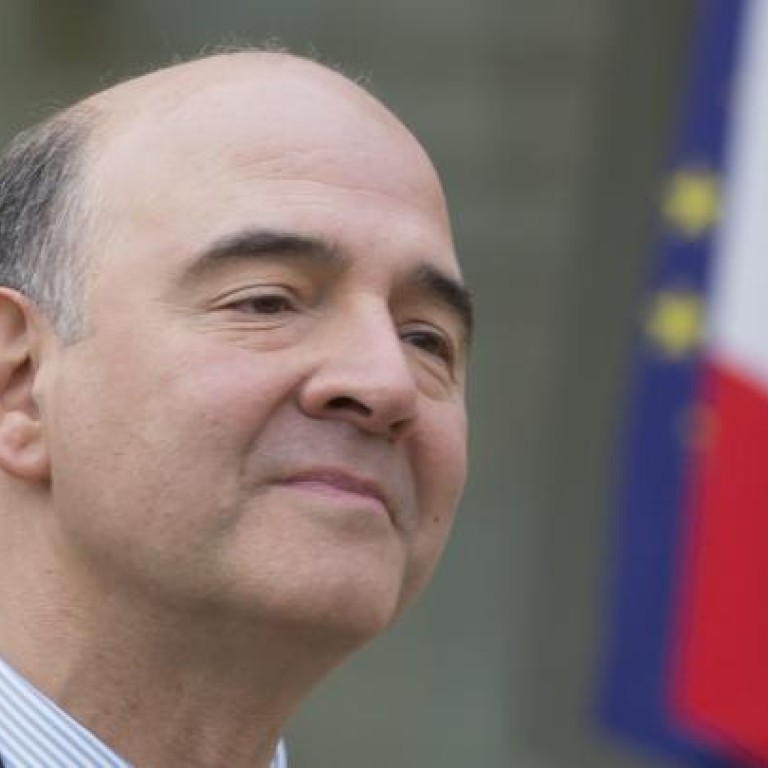
France defends banking reform
France has introduced a long awaited bank reform bill and dismissed criticism that the measures fell short of campaign promises by French President Francois Hollande to get tough on bankers.
French Finance Minister Pierre Moscovici said the reform was inspired by reforms currently being pushed through by the EU and was above all meant to ”protect the deposits of savers.”
But critics said the measures either put too big a strain on banks already saddled with new regulations, or failed to free the heavily indebted French state from the fate of the country’s lending giants.
One of the key measures will force France’s major banks to move so-called proprietary trading -- investment activity involving the banks own assets including deposits -- into separately funded entities.
Moscovici estimated that speculative activities affected by this measure ”currently represent up to 10 percent of the net banking product (roughly equivalent to sales) that large French banks realise through market activities.”
The reform also bans high frequency trading, the controversial practice of having super-computers carry out ultra fast trades instead of traders, and commodity derivatives trading which is thought to disrupt food prices.
The raft of measures, which were carefully prepared over the past months, also beefs up the intervention powers of France’s official banking watchdog, the ACP, which depends on the Banque de France central bank.
In case of a bank failure, the agency will be able to nominate new management, impose asset sales and force shareholders and creditors into contributing to any subsequent rescue.
The French Banking Federation criticised the reforms as they create ”constraints and additional costs at a time when banks already have a lot on their plate in meeting their Basel III requirement.”
The global Basel III measures require banks to beef up holdings of safe assets, which lenders say limits lending to the real economy, to shield the banks from financial shocks.
Brussels-based advocacy group Finance Watch meanwhile accused the government of reneging on a pledge to break up the universal bank model, a corporate structure championed by France’s banking sector.
The draft law leaves “the essential activities of creating credit, taking deposits and operating the payment system under the same roof as financial trading,” the group said.
“President Hollande promised during the presidential election campaign to separate banks’ lending from their speculative activities,” the organisation noted.
Unlike the French reform, an EU proposal by Finnish central banker Erkki Liikanen unveiled in October would separate consumer deposit-taking from high-risk trading.
The proposed law also failed to fully protect the government from having to rescue failing banks, several analysts agreed.
Moscovici defended the draft legislation however, maintaining that “the law was conceived to deeply reform the sector” and that Hollande’s campaign promises had not been buried.
“There’s been no compromise, no denial, no betrayal,” Moscovici insisted.
